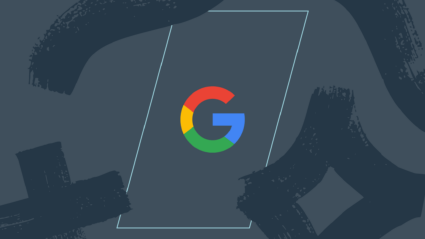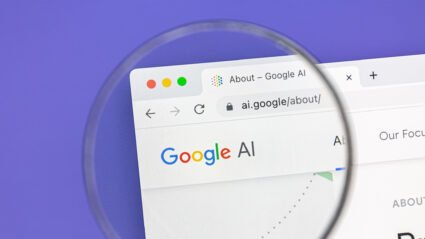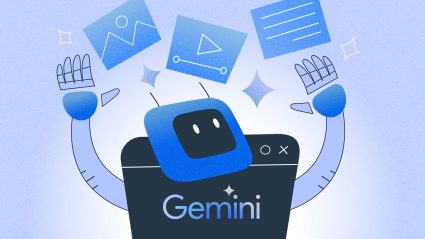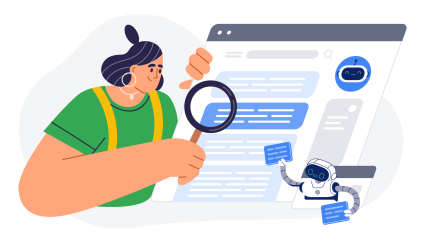From the November launch of OpenAI’s ChatGPT and Microsoft’s billion-dollar investment in OpenAI to the recent announcement of Google’s Bard and the slow rollout of the new AI-powered Microsoft Bing and Edge, it’s not easy to keep up with the fast and furious updates around artificial intelligence (AI) and its many applications.
But don’t let all the noise distract you from an important fact: as AI search engine integration becomes more accessible to the public, a valuable opportunity is emerging for marketers to gain a newfound competitive edge.
It’s a game-changing moment for search and a key area of focus for all players in the SEO space, whether you’re a marketer at a FAANG giant, a Fortune 500 company, or a small DTC brand. This is your chance to incorporate these powerful resources into your earned media strategy.
Businesses need to take a strategic approach to exploring the potential of this rapidly evolving technology and make informed decisions about where and when to leverage AI.
It’s good to be curious, but you should also think through some big questions: what does responsible AI use look like? What are the implications for search tech? How will we be using AI and measuring the impact of the technology in the near future?
There are four key considerations to keep in mind if you’re considering using AI for SEO.
When it comes to generative AI, be cautious and keep asking questions
While OpenAI’s Chat GPT is the current frontrunner when it comes to compelling capabilities, expect that hyper-specialization in a crowded AI space will be on the rise as innovators and investors build startups to meet demand.

Source: Antler
This frenzied demand for automation will lead to both exceptional AI solutions and less-than-savory players that drum up hype with lower-quality offerings. Don’t neglect the very real possibility that corporations or news organizations that own AI will be subject to manipulation or special interests.
Any time access to information is controlled by special interests you need to be wary of phishing, bias, monopolies, and propaganda. It’s possible that the richest and most powerful tech companies will have more control over what users can read, hear, watch, download, purchase, and engage with.
Whether it’s built by a bot or a person, spam never wins (and neither do shortcuts)
For over 20 years, the pursuit of an SEO advantage through artificial means has continued—but it’s never been sustainable via either clever shortcuts or faked authority. Organic search success requires a commitment to serving the best interests of your customers with accountability and integrity. Those who neglect these fundamental principles will ultimately fall short.
The human touch is still what brings unique perspectives, creativity, and critical thinking to the table.
The combination of human plus AI support will be the key to success in the future as visibility factors and tactics that work are put to the test by qualified performance media strategists.
AI tools can serve as a lever to kickstart ideation, discovery, and proof of concepts. For example, leveraging ChatGPT for keyword cluster analysis can significantly improve analysis and organization. The tool’s advanced language processing capabilities and extensive knowledge base mean it can quickly identify keywords, as well as formulate and consolidate them into clusters. SEOs can then develop recommendations more effectively and efficiently.

Source: ChatGPT
As the integration of AI and search technology continues to evolve, it is becoming increasingly clear that the creation of curated content specifically tailored to users will continue to be the best strategy for acquiring and retaining customers.
That personalized approach helps establish trust and fosters brand loyalty, positioning companies as thought leaders in their respective industries. By continually delivering targeted, segmented messaging, businesses are able to effectively communicate the right message to the right audience at the right time.
There is much we don’t yet understand about the types of content that AI will favor. Companies must remain vigilant and adjust their content publishing strategies accordingly in order to maximize the potential benefits of these technologies and the impact they will have on short- and long-term organic visibility.
The Google Search Central team has put together a great resource for understanding AI content by focusing on the quality of content instead of how content is produced. In their own words, “no one would have thought it reasonable for us to declare a ban on all human-generated content,” which is why you can’t expect a blanket ban on AI-generated content. At least not as it currently stands.
The future of AI-integrated search could mean we finally say farewell to the constraints of the keyboard
As we move forward, it’s easy to picture how the integration of AI into smartphones and desktop computers like Chrome, Windows, and iOS could ultimately alter the landscape of online search.
Built-in platform assistants (Siri, Cortana, and OK Google) will become more integrated and seamless within operating systems so users can access AI search functionality directly from their devices. Natural language processing (NLP) technology could allow users to communicate with their devices and access information without opening a separate app or program.
As AI technology improves, built-in assistants may also become more personalized and context-aware, anticipating users’ needs and providing relevant suggestions and assistance based on location, time of day, and device type.
The notion that a search box and keyboard can constrain curiosity or access to knowledge will be a thing of the past.
Users will be able to have a back-and-forth conversation with AI systems to refine their search and get more specific answers. This will be especially useful in complex or multi-step search scenarios.
Other types of answer results that could emerge in a keyboard-less world include:
- Predictive search: A search engine that can anticipate a user’s needs based on their search history and other data and suggest results before they even complete their query.
- Multi-modal search: Search using a combination of text, image, voice, and other inputs to get more comprehensive and accurate results. You can see more about Google’s rollout of language, video, audio, image, and map technology at Google’s Live in Paris event.
Measuring success on the AI-integrated SERP will be more complex but even more critical
It’s difficult to predict the future with certainty, but zero-click results and the trend toward more direct answers on the search results page will incrementally rise in prominence. It’s highly probable that a blurring of clear source attribution will follow closely behind.
Think about it: if users are able to have a back-and-forth conversation with AI systems to refine their search and get more specific answers, complex or multi-step search scenarios might blend sources, leading to less clarity on the source of the info or a need to click-in for deeper context.
But you will still need to track and measure the volume of searches, traffic, conversions, and revenue generated. These metrics provide valuable insights into user behavior and the performance of content in search.
A focus on feeding AI tech contextual content blocks, long-form copy, assets, images, video, micro-sites, and OS-specific progressive “apps” could overtake traditional web development. Realistically, it’s not clear if the concept of websites as we currently understand them will continue to be the defining structure of the internet.
It’s time to reimagine the way we’ve been developing assets and performance marketing. The promise and potentiality of AI technologies will make room for a landscape full of ingenuity.
By leveraging AI tools, you can build a digital strategy that also allows for time and energy to work on more innovative, creative, and human-focused initiatives.
Brands should do what they can to challenge the boundaries of AI and search technology. We can then use these advancements to create a better and more connected relationship with our customers and the world around us.
AI isn’t the only thing evolving in 2023. Get the full story on the ever-changing regulations around data privacy with our guide to the State of the Data 2023.







Responses